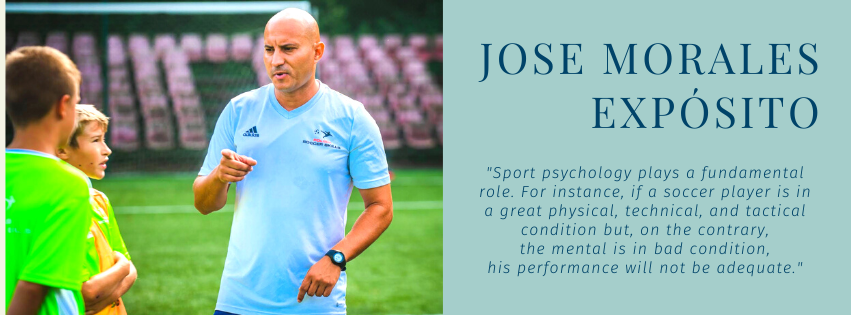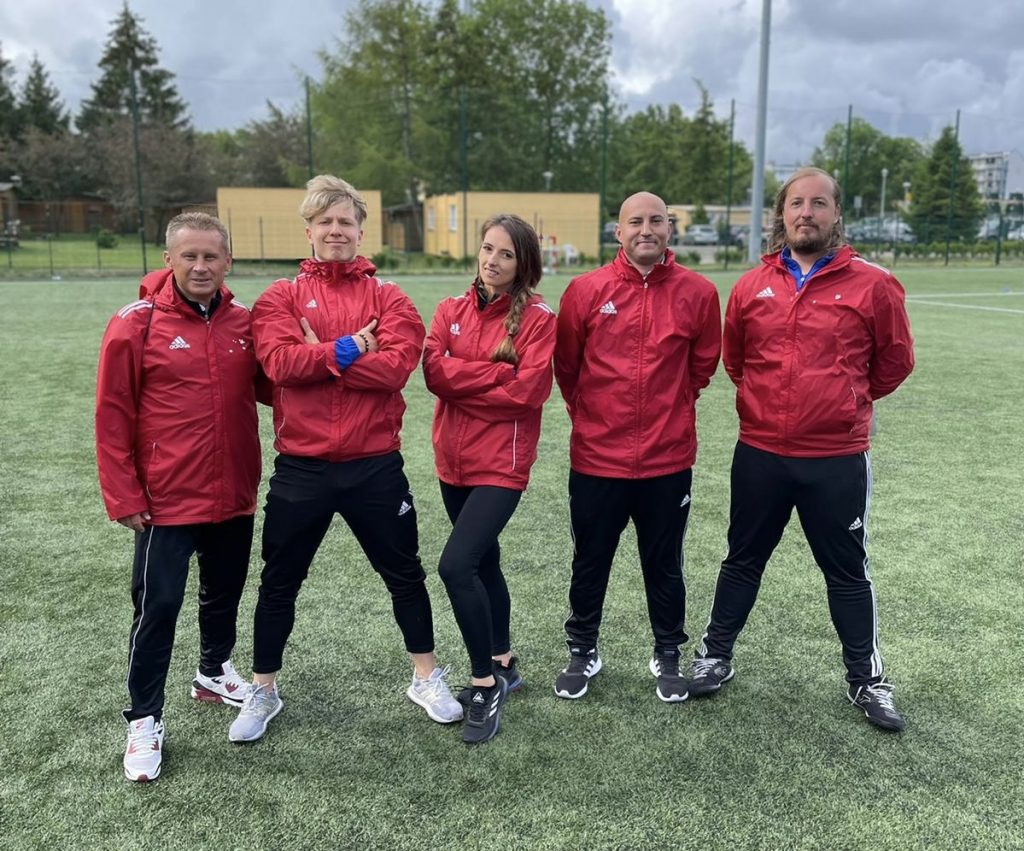This is the first blog post that opens the series “MEET THE COACH – Let’s talk about applied sport psychology”. The purpose is to introduce coaches from different sports disciplines and bring closer the topic of sport psychology in practice. My first guest is a soccer coach from Córdoba, Spain who also works with young Polish, Jose Morales Exposito. We had an opportunity to work together and talk extensively about psychological aspects in soccer. Moreover, last time we discussed more about the coaching experience that Jose gained in soccer as both a player and coach.

Vicky: How did you get started in soccer and how did you start your coaching job?
Jose: I played soccer until I was 18 years old as a goalkeeper. At the same time I studied physical education and coaching licenses.
A knee injury during my youth, made me stop playing soccer one night and the next morning I started training at the age of 18.
Vicky: Why did you choose Poland for your career and what is it like to work here?
Jose: I chose Poland because I think that what I know about soccer here might interest you.
I set foot in this country for the first time 7 years ago, and since then, I fell in love with it.
I admire its people and the strength of its workers. They taught me their capacity for hard work and sacrifice. With effort there is always a reward.
I identify very much with their culture and their way of interpreting sacrifice.
I like working in that country because I feel valued and I think I can contribute my knowledge. It will always be a pleasure to work for that country.
Vicky: What elements of children and teenagers coaching do you emphasize the most?
Jose: I like the intense and dynamic trainings. I consider physical preparation (motoryka – mobility) to be fundamental for the game.
Nowadays, soccer is played at very high speed and with a lot of rhythm. That is why players must take care of their physical aspect.
We prepare training sessions where the player has to make quick decisions, such as playing with one or two touches.
Vicky: Do you see differences in soccer training between Poland and Spain? Which ones?
Jose: In Spain, the tactical aspect is worked on from the lower categories. In a global way. The possession games, the rondos. And we focus on playing with one or two touches. We think very fast. The creativity of the player is enhanced.
In Poland we work very well and a lot on the physical aspect. Also in lower categories we work on individual and technical training in small groups.
Another difference is the size of the soccer fields and the goals, depending on the age group.
Vicky: What significant differences do you see between the Polish and Spanish style of play?
Jose: There are some differences between Spanish and Polish soccer.
Polish soccer is a soccer of players who are very well prepared physically, because they are strong by nature, and where the matches are fought until 90′.In Poland you have to run, fight all the time, press; here in Spain you try to have possession of the ball, play it, touch it. In the midfield there are more technical and creative players in attack.
Polish soccer in general stands out for its physicality and that is the style of the league, more contact and direct play. Despite this, they have produced some quality players in recent years. Lewandowski and Zielinski are two examples. They have a great capacity for effort, not without quality.
Something that is striking is the ease with which they get goalkeepers out. In Spain they have even made it to Segunda B and Tercera, where there are a dozen. Not to mention Szczesny (Juventus), Skorupski (Bologna), Fabianski (West Ham), Majecki (Monaco), Dragowski (Fiorentina).
Vicky: Now, let’s talk about applied sport psychology in soccer. I’d like to know your opinion about the role of the mental aspect in soccer. Is it important or it doesn’t play a significant role?
Jose: I consider that it plays a fundamental role. For instance, if a soccer player is in a great physical, technical, and tactical condition but, on the contrary, the mental is in bad condition, his performance will not be adequate.
Vicky: Do you think there is a high demand for support from a sports psychologist today?
Jose: Currently, the figure of the sports psychologist is much more in demand than a few years ago.
It is necessary and more and more clubs incorporate them into their grassroots football teams and academies. Where in its structures there is a department of psychology.
Vicky: Do you think that the coaching environment also needs psychological education?
Do you think that coaches have a hard time for asking a psychologist for help if they have a problem?
Jose: All athletes, including coaches, need psychological education.
I think so, the coach always has to be mentally strong in front of his team and that makes it more difficult for them to ask for help. However, I think that currently, you see more coaches surrounded in their work group by the psychologist.
I believe that it is essential to have psychological support, since there are times when the results are not good, a dismissal or the pressure to achieve an objective leads them to have to receive psychological attention.
PART 2 SOON 🙂

